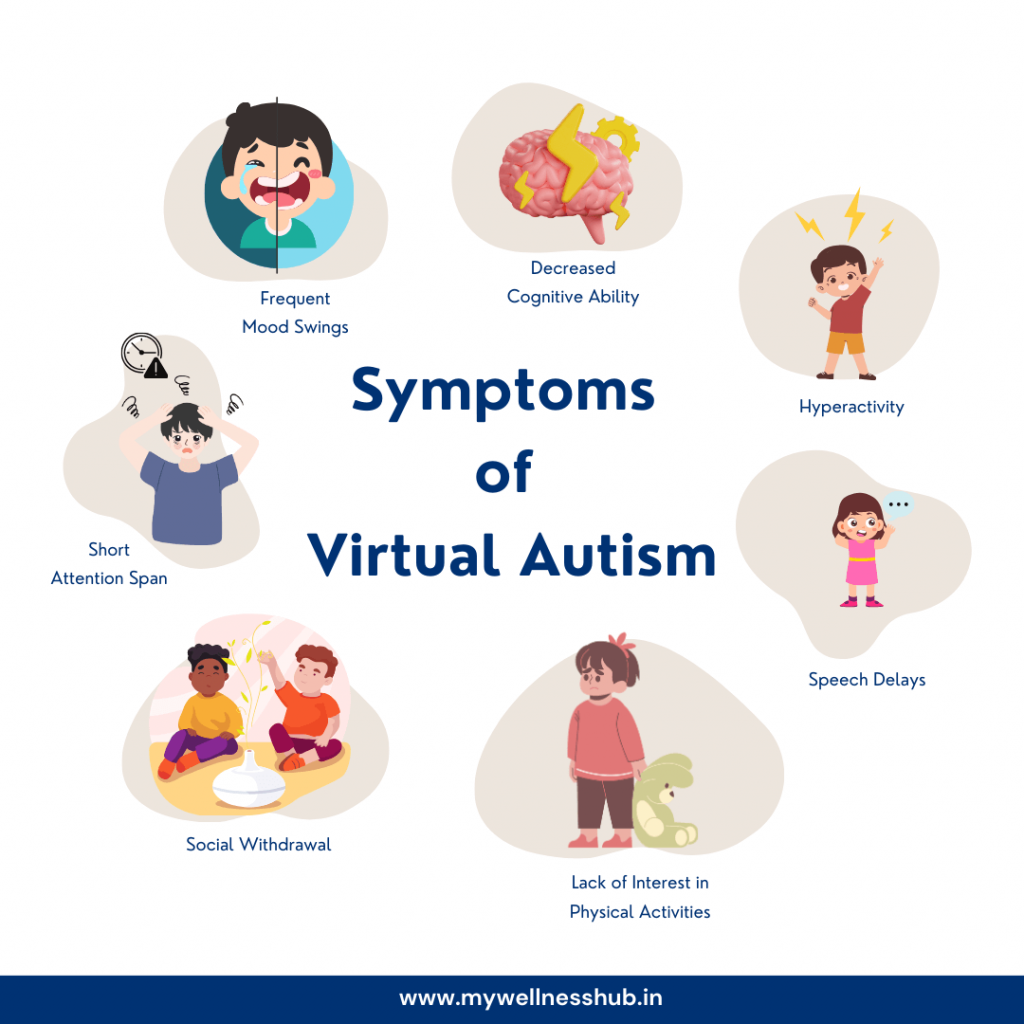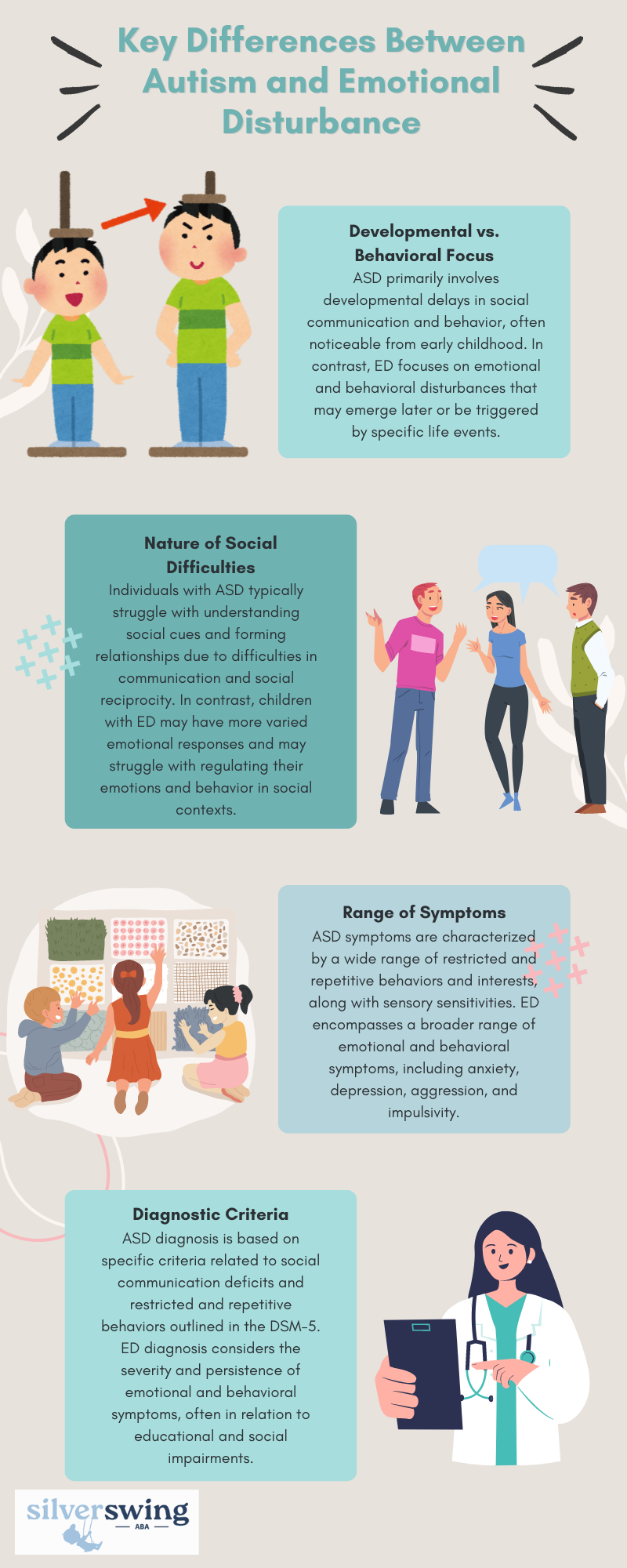Ten Essential points about how an Autism Therapist's intervention supports social growth in autism
Ten Essential points about how an Autism Therapist's intervention supports social growth in autism
Blog Article
Trick Signs and Symptoms to Acknowledge in Individuals With Behavior Autism
When you experience somebody with behavior autism, recognizing key indicators and signs is necessary. You might see obstacles in social communications and interaction, as well as a solid demand for regimens. In addition, sensory sensitivities can bring about frustrating experiences. Understanding these traits can enhance your assistance and interventions, yet there's more to uncover concerning how these actions manifest in day-to-day scenarios. Allow's discover what these indications really resemble.
Obstacles in Social Interactions
When you communicate with someone on the autism range, you might see they have a hard time with social signs and interaction. These challenges can make social interactions feel overwhelming for them.
When they do involve, they may talk about their interests in terrific detail without seeing if you're interested. Comprehending these obstacles can assist you come close to interactions with compassion and persistence, promoting a more comfortable environment for both of you.
Trouble With Verbal and Non-Verbal Interaction

Non-verbal communication can be much more challenging. You could see an absence of eye contact or minimal use motions, which can make communications feel awkward. Facial expressions may not constantly align with the conversation, causing confusion regarding their sensations. Acknowledging these indications is important, as it aids you better support and engage with people on the autism spectrum. By recognizing their communication challenges, you can foster much more purposeful connections and give a much more supportive atmosphere.
Repetitive Actions and Routines
Communication challenges often accompany other indications of autism, such as repetitive behaviors and a solid choice for routines. You might notice that individuals with autism typically take part in specific, repetitive activities, like hand-flapping, shaking, or duplicating phrases. These behaviors can give comfort and a feeling of control in an often frustrating world.
Regimens are just as important; several individuals thrive when they adhere to a structured timetable. You might locate that changes to these routines can lead to considerable distress. As an example, if they have a day-to-day routine of eating morning meal at a certain time or following a certain course to school, any kind of disturbance can cause anxiety.
Recognizing these patterns assists you recognize their habits and offer support. By fitting their demand for regular and permitting recurring actions, you can develop a much more comfy setting that relieves their obstacles.
Sensory Sensitivities

Usual Sensory Triggers
Sensory sensitivities can substantially impact life for people with autism, as specific stimulations often set off frustrating reactions. Typical sensory triggers include loud sounds, brilliant lights, and strong scents. You may observe that sudden audios, like alarms or sirens, create anxiousness or distress. Similarly, fluorescent lights in stores can really feel uneasy and rough. Textures can additionally play a considerable duty; rough textiles or certain food textures may be unbearable for you. Furthermore, crowded locations can bewilder your detects, making it difficult to relax or concentrate. Comprehending these triggers can assist you handle your environment better. By being aware of what impacts you, you can take steps to reduce pain and boost your everyday experiences.
Behavioral Responses Explained
Recognizing your behavior feedbacks to sensory level of sensitivities is important, as they frequently expose just how you connect with the globe. You may also discover yourself seeking details sensory experiences, like deep pressure or peaceful atmospheres, to more info assist ground yourself. Identifying these patterns assists you understand your needs much better and can lead exactly how you communicate them to others.
Coping Techniques Review
Recognizing your sensory level of sensitivities is simply the initial step; currently it's time to check out coping methods that can help you handle those experiences properly. Beginning by developing a sensory toolkit customized to your needs. This could consist of noise-canceling headphones, fidget playthings, or calming fragrances. Establishing a structured regimen can additionally give predictability, lowering stress and anxiety around sensory overload. When you feel overwhelmed, take breaks in a quiet room to regroup. Practicing mindfulness strategies such as deep breathing can aid ground you in the minute. Furthermore, communicate your requirements with those around you; having supportive loved ones can make a huge difference. Remember, discovering Aba Therapist Near Me what works ideal for you might take time, so be open and patient to trying brand-new methods.
Limited Interests and Focus
While many people develop a wide variety of interests, those with autism usually demonstrate restricted interests and an intense concentrate on details topics. You could see that someone with autism can spend hours delving right into their favored subject, whether it's a particular kind of train, a specific motion picture, or a scientific idea. This intense emphasis isn't just a pastime; it can become a central component of their identity and social interactions.
You might find that conversations rotate around these passions, and they may battle to participate in more comprehensive subjects. For them, these focused passions give comfort and a feeling of mastery. While it is essential to urge exploration of brand-new topics, respecting their passions is just as necessary. By comprehending and acknowledging these limited passions, you can foster a supportive atmosphere where they feel valued and understood, permitting more purposeful links and interactions.
Emotional Guideline Difficulties
Individuals with autism typically deal with difficulties check here in emotional guideline, which can be influenced by their intense focus on specific passions. You could observe that when an individual is deeply participated in a favored task, they can experience strong feelings, whether enjoyment or irritation. When points don't go as planned., this intensity often makes it hard for them to shift equipments or manage their sensations - Autism Therapist.

Irregularity in Developing Landmarks
When it concerns developmental milestones, you'll observe that individuals with autism usually reveal a variety of variability. Some might hit landmarks on time, while others might lag behind or development at a different pace. You may see a child excel in language abilities however struggle with social interactions. This disparity can be complex, as traditional benchmarks do not always use.
It's important to recognize that each person's journey is unique. Some may establish complicated abilities early, just to face difficulties later on. Others might take longer to attain standard milestones but then thrive in specific areas. Observing these patterns can assist you understand their staminas and needs much better.
Frequently Asked Inquiries
Just How Is Autism Identified in Children and Adults?
To identify autism in youngsters and adults, specialists review actions, communication skills, and social communications. They often make use of standardized tests, meetings, and observations to establish if an individual meets the requirements for autism spectrum condition.
Are There Different Kinds Of Autism Spectrum Disorders?
Yes, there are various kinds of autism spectrum problems, consisting of Asperger's syndrome and prevalent developmental disorder-not otherwise specified. Each type differs in seriousness and characteristics, so comprehending these distinctions can help you better assistance individuals with autism.
What Therapies Work for People With Autism?
When considering effective treatments for individuals with autism, you'll discover alternatives like Applied Habits Analysis, speech therapy, and work-related treatment. Each approach can assist improve communication, social skills, and day-to-day working tailored to individual requirements.
Can People With Autism Lead Independent Lives?
Yes, individuals with autism can lead independent lives. With the ideal support, skills training, and resources, you can assist them establish self-sufficiency, manage daily jobs, and thrive in various settings, promoting their freedom.
How Can Families Assistance Liked Ones With Autism?
You can support your loved ones with autism by producing a structured atmosphere, motivating their interests, practicing patience, cultivating communication, and advertising social skills. Commemorate their accomplishments, despite just how small, and develop an encouraging area.
Although several people on the autism spectrum can understand and make use of language, they often face substantial challenges with both spoken and non-verbal interaction. Recognizing these indicators is essential, as it helps you far better assistance and involve with people on the autism range. You may notice that people with autism commonly involve in details, repeated activities, like hand-flapping, rocking, or repeating expressions.Sensory sensitivities can significantly impact everyday life for individuals with autism, as certain stimuli typically cause overwhelming reactions.When it comes to developmental landmarks, you'll see that people with autism frequently reveal a vast array of variability.
Report this page